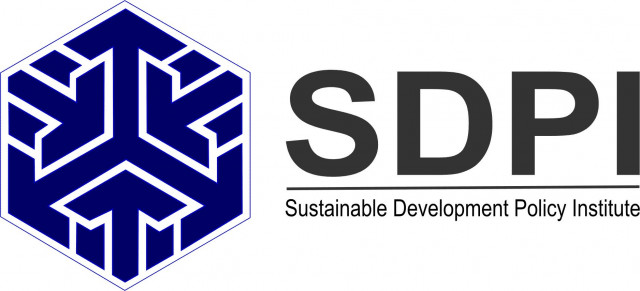ISLAMABAD, Saturday, May 31, 2025 (WNP): Against the backdrop of the United States’ withdrawal from the Paris Agreement and a deepening global climate finance crisis, the Sustainable Development Policy Institute (SDPI) convened a high-level virtual policy dialogue, uniting influential voices from across the Global South to chart a new path for climate governance.
The session, held under the umbrella of SDPI’s Network for Clean Energy Transition (NCET), focused on the recalibration of Nationally Determined Contributions (NDCs) 3.0 and rethinking diplomatic strategies to achieve a just and resilient energy transition, according to an official press release issued on Saturday.
The dialogue featured an expert panel comprising policymakers, climate finance specialists, and researchers from South Asia, East Asia, and beyond. Key participants included Dr. Shafqat Munir, Deputy Executive Director, SDPI; Engr. Ubaid ur Rehman Zia, Head of Energy Unit, SDPI; Muhammad Faisal Sharif, Director, Environment and Climate Change, Private Power and Infrastructure Board (PPIB), Ministry of Energy; Dr. Alexandra Soezer, Director, Climate Action Centre of Excellence; Ma Yue, Analyst, IGDP China; Anjali Viswamohanan, Director of Policy, AIGCC; and Dr. Zainab Naeem, Head of Ecological Sustainability, SDPI.
Opening the session, Dr. Shafqat Munir highlighted the alarming shortfall in global climate finance, stating that only $300 billion of the projected $1.3 trillion has been pledged through 2035. He warned that the withdrawal of major players such as the United States threatens to derail the $100 billion annual pledge, leaving vulnerable nations further exposed.
Dr. Munir also criticized Pakistan’s existing NDC framework for lacking transparency, containing unrealistic targets, and excluding key stakeholders. “We must move from rhetoric to real, inclusive, and resourced climate action,” he stressed, advocating for a participatory approach to NDCs 3.0 and enhanced regional coordination across the Global South.
Speaking on the energy transition, Engr. Ubaid ur Rehman Zia emphasized that the NDCs remain a foundational element of climate governance in South Asia. He expressed concern over the shrinking climate finance landscape due to geopolitical shifts and advocated for market-based financing mechanisms and stronger South-South cooperation to support clean energy technologies and climate-tech innovations.
Offering a sector-specific perspective, Muhammad Faisal Sharif highlighted Pakistan’s ongoing policy initiatives, including expanding net metering, phasing out fossil-intensive Independent Power Producers (IPPs), and embedding climate justice into national planning. However, he acknowledged the challenges of a fossil-heavy energy grid and limited technology transfer frameworks. “NDCs 3.0 present a strategic opportunity to align our development with global low-carbon standards and just transition frameworks,” he noted.
Ma Yue of China’s IGDP shared insights from China’s climate transformation, noting that electric vehicles now constitute over 40% of new car sales. She stressed the importance of integrating greenhouse gas lifecycle accounting into NDC strategies and called for global transparency and South-South cooperation as vital enablers of climate resilience.
Anjali Viswamohanan pointed to growing investor awareness of climate risks, with 75% of institutional investors recognizing its long-term economic impact. She emphasized the need for governments to provide enabling policy environments, including risk mapping, de-risking tools, and policy clarity, to unlock private capital for Nature-Based Solutions (NBS) and climate financing. “There is investor momentum. What’s needed now is access, trust, and regulatory clarity,” she said.
Dr. Zainab Naeem warned that current climate frameworks often exclude local communities, particularly women, youth, and indigenous groups. She called for bottom-up adaptation approaches and the institutionalization of community-led models. “Adaptation must be people-centric. Without local ownership, policies risk exacerbating existing vulnerabilities,” she cautioned.
Providing a global perspective, Dr. Alexandra Soezer warned that geopolitical instability is undermining the flow of climate finance to developing countries. She underlined the importance of Article 6 of the Paris Agreement and urged countries to diversify their financing portfolios and strengthen regional cooperation. “The global climate regime is in flux. Developing nations must be geopolitically agile and financially prepared to turn their NDCs into meaningful action,” she remarked.
Concluding the dialogue, Mr. Shakeb Elahi, Senior Advisor at SDPI, emphasized that NDCs 3.0 must be inclusive, implementable, and backed by solid financing. He called for enhanced regional collaboration, resilient institutions, and the integration of both community-led and private sector-led approaches in climate governance.
The policy dialogue is part of SDPI’s broader mission under the NCET platform to facilitate evidence-based discussions on climate diplomacy, clean energy transitions, and sustainable development.




